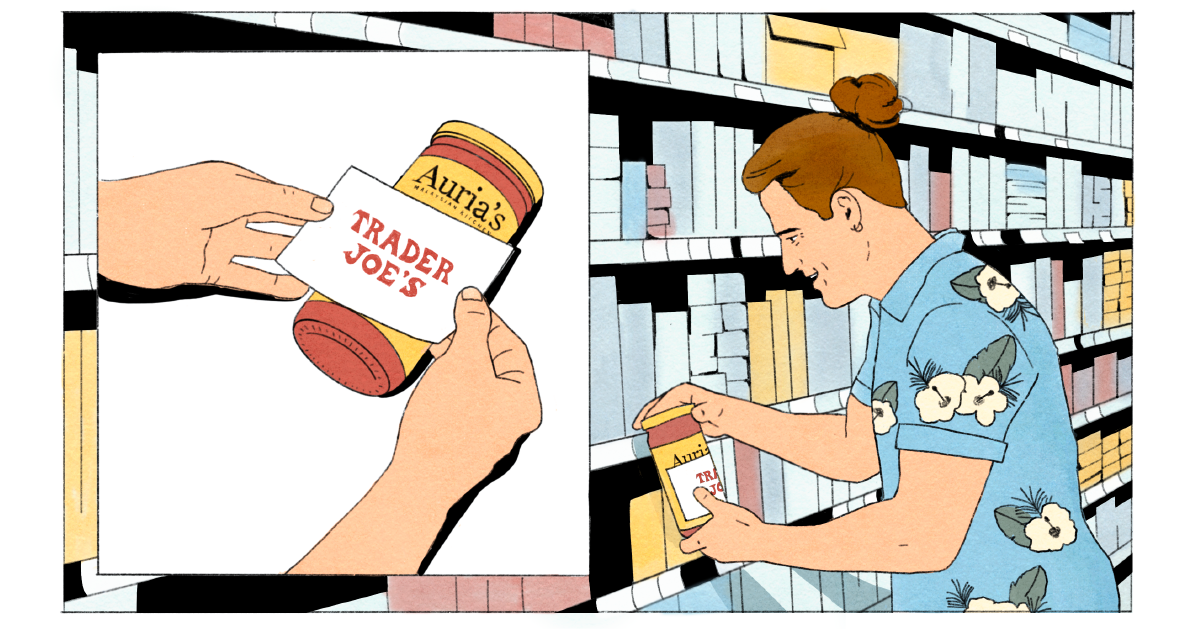We Need to Talk About Trader Joe’s

🌈 Abstract
The article discusses the questionable business practices of Trader Joe's, a popular grocery store chain, particularly its alleged practice of copying and undercutting small, minority-owned food brands through its private-label products.
🙋 Q&A
[01] Behind the Bubbly Facade
1. What are the questionable business practices that Trader Joe's is accused of?
- Trader Joe's is accused of aggressively copying and undercutting small, minority-owned food brands through its private-label products.
- The company is said to solicit product samples and recipe information from these brands under the guise of potential partnerships, only to then launch similar products at lower prices.
- Trader Joe's is also accused of shamelessly copying the packaging and branding of established ethnic food products.
2. How does Trader Joe's justify its product development approach?
- Trader Joe's claims that it aims to provide customers with more affordable groceries, and that if a product is not a "great value," the company will either find another source for something similar or work with suppliers to make the prices more reasonable.
- However, the article suggests that Trader Joe's uses this justification to sandbag negotiations with small brands by offering them wholesale prices that they cannot meet, allowing the company to then launch similar products at lower prices.
3. What is the impact of Trader Joe's practices on small, minority-owned food brands?
- Small brands feel that Trader Joe's is capitalizing on their years of product development and marketing by copying their products and undercutting them on price.
- This makes it more difficult for these brands to introduce new product categories and educate the public, as Trader Joe's is able to offer watered-down versions of the same products at lower prices.
- The article suggests that Trader Joe's is squandering the opportunity to showcase and support these small, minority-owned brands.
[02] Racial Insensitivity and Cultural Appropriation
1. What are the concerns around Trader Joe's racially insensitive packaging and branding?
- In 2020, Trader Joe's faced public outcry over the use of racially insensitive packaging and branding, such as "Trader José" and "Trader Ming's," for its private-label ethnic food products.
- The company initially sounded contrite but later refused to change many of these labels, arguing that they were not racist.
- The article suggests that the exoticism and cultural appropriation at the heart of Trader Joe's branding feels less charming today, especially in the context of the company's alleged copying of minority-owned brands.
2. How do experts view Trader Joe's approach to ethnic food products?
- Chef and author Preeti Mistry argues that Trader Joe's business model is "based on racial insensitivity," as it is "basically a white guy named Joe who travels the world and brings these delicious foods to your neighborhood."
- The article suggests that Trader Joe's could be showcasing the actual people and brands behind the ethnic food products it sells, rather than cutting corners and taking credit for them.
[03] Resistance and Calls for Change
1. How are small, minority-owned food brands responding to Trader Joe's practices?
- Some brands, like Brooklyn Delhi and Auria's Malaysian Kitchen, have tried to call out Trader Joe's actions on social media and in direct communication with the company.
- However, there is little optimism among the sources interviewed that Trader Joe's tactics will change, as the company's rabid fan base continues to drive demand for its low-priced products.
2. What are the calls for change from the small food brands?
- The article suggests that the only way Trader Joe's practices will change is if consumers become more aware and vocal about the issues, and stop demanding the company's cheap knockoff products.
- Some brands, like Fly By Jing, have made it clear that they would only consider partnering with Trader Joe's if the company was also willing to carry their own branded products in its stores.